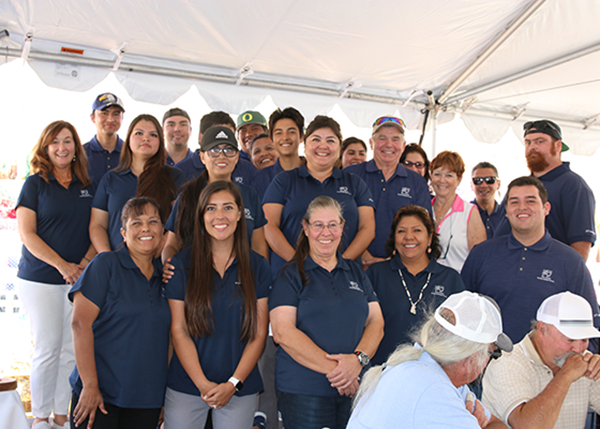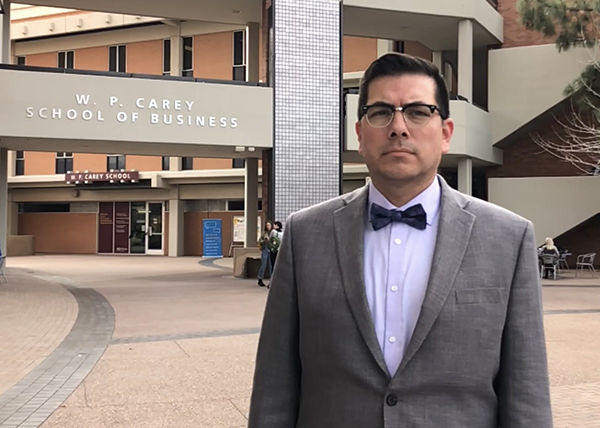Law school is tough enough, why pursue joint degrees? Will this serve Indian Country? Again, we asked our alumni.
- Robert A. Rosette (’96), Partner and founder of Rosette, LLP
- Marlene Ray (’97), business manager and philanthropist
- Perry Riggs (’98), Deputy Executive Director, Navajo Nation Washington Office
- Theresa Rosier (’98), Deputy General Counsel, Salt River Pima-Maricopa Indian Community
- Verrin Kewenvoyouma (’04), attorney, business advisor, and owner of Kewenvoyouma Law, PLLC
- Courtney Monteiro (’06), Senior Vice President, Sovereign Finance, LLC
- Bartley Harris (’08), Attorney, Four Rivers Indian Legal Services
- Kris Beecher (2L), student and Chairman of the Board of Commissioners for the Navajo Housing Authority

What is your current occupation and how long have you held that position?
Theresa Rosier: Deputy General Counsel, Salt River Pima-Maricopa Indian Community.
Marlene Ray: Currently, along with managing two family businesses, my focus has been on philanthropy and volunteering which has included tutoring/mentoring Native American high school students and managing the Ray Jones Scholarship Fund benefiting California Indians pursuing postsecondary higher education. It is a great honor and privilege to be able to encourage and assist young Native people pursuing higher education either in college or trade, planting seeds for generation after generation benefiting their families, their communities and all Native peoples.
Verrin Kewenvoyouma: I am an attorney, business advisor, and owner of Kewenvoyouma Law, PLLC. We are a boutique law firm which provides legal and business counsel to Indian tribes and their enterprises, primarily in the areas of corporate transactions. I have been the sole and managing partner of our firm for nine years. Prior to that, I briefly worked for another boutique law firm, KPMG, and a large national bank doing commercial finance.
Kris Beecher: I am currently a JD/MBA law student starting my last year of law school in the fall of 2019. Additionally, I also serve as Chairman of the Board of Commissioners for the Navajo Housing Authority, a position I have held since July 2017.
How have your concurrent MBA and JD degrees affected your career? Do you wish you had chosen a different field?
Theresa Rosier: The dual JD/MBA degree was an extremely helpful degree to obtain prior to starting my career. The additional exposure that I had at the WP Carey School of Business has helped me in the following ways: 1) I am very comfortable with public speaking, and I always credit that the my MBA training, 2) I work in the area of Indian economic development, and the MBA helps me work through the business side of the transactions, even though I am acting in an attorney capacity, and 3) the MBA program’s emphasis on team work has helped me shepherd large projects and manage staff in an effective manner.
Marlene Ray: As the first member of my Tribe (Table Mountain Rancheria) to graduate from college (Stanford University) and then to pursue a professional degree, I decided to pursue a joint JD/MBA degree because of the legal issues and business interests that Tribes encounter and knowing in some way I would be representing and advocating for Native peoples or businesses in my career and personal life. At the time, I thought a business degree would complement and enhance my participation in the Indian Legal Program and my interest in environmental and natural resources law, a decision that was proven true for me.
After graduation from law school, I returned to Alaska to work on an environmental case in the legal department at BP Exploration (Alaska), a company I had worked for during college summers. My focus in law school in environmental and natural resources law were a great foundation for my work and interests in Alaska. From Alaska, I moved to Portland, Oregon, to pursue an L.L.M. in Environmental and Natural Resources Law at Lewis and Clark Law School. Although I did not finish the program, I gained greater knowledge of the natural resources issues facing Tribes in the northwest as well as a new perspective on the economic, historical and legal context of Tribes in the northwest. Upon returning to California, I was elected onto my Tribe’s board of directors at our casino, an experience that engaged the knowledge I had garnered from law school and business school as well as my previous work.
Verrin Kewenvoyouma: While law school and experience can train you to become a good lawyer, neither legal experience nor law school train you to be a good business person. My MBA has been instrumental for me to not only manage my own firm, but to provide fully competent business advice to my clients. My joint degrees have paid off ten-fold: I have been able to raise my family (and extended family), doing the job I love, and now have opportunities to create opportunity within my own community and the communities within which I work. In short, my own career has been a means to an ends to create opportunity not only for myself, but to empower others as well. When you combine business and legal experience it is not zero sum game: you will find ways to create value for your clients and the people with whom they do business.
Kris Beecher: While working on these degrees I have had the benefit of taking certain aspects of what I have learned in both disciplines and applying them in near real-time to my duties as a commissioner. I do not believe that I could have picked a better match as far as my education and the direction of my career.
In what ways do you use your knowledge of law in your career and everyday life?
Theresa Rosier: I am an attorney and work with the law every day. I often say, that I am professional problem solver. Most of my day is working across the table with experts from various fields who all are working towards a common goal/result. We have to work together to get that project or goal done for the client.
Marlene Ray: Throughout the years, all of my professional and personal experiences have in some way been enriched and informed by the degrees I earned at Stanford University, ASU Law and ASU W.P. Carey School of Business as well as by the people, mentors, classmates and colleagues I’ve met as a result of attending college, law school and business school. As I mentor young Native students either getting ready to begin college or considering a post-graduate degree, I encourage them to consider their vast array of options, research different programs and schools, talk with current students in the program or school they’re considering, visit the program in action, figure out a budget, know there are people and resources to help them, and most importantly, to believe in themselves that their heart’s desire is important, worthy and possible.
Verrin Kewenvoyouma: A wise lawyer once told me, “you can not become a good business and transaction lawyer unless you’ve done some litigation in those areas as well.” Even in scenarios where all parties have the best of intentions, as lawyers, we are trained to see the world in the most challenging ways and draft to those situations. Indeed, in litigation contract matters I have seen those situations come to life. While we can’t move through the world walking on egg shells, I’ve found that no matter the scenario, business, law, or otherwise, if you approach a situation recognizing all foreseeable options, very importantly, the solutions as well, you’ll be well prepared for anything. In short, think of all the challenges and benefits of your decisions, and be prepared.
Kris Beecher: Whether I am working on projects as a commissioner or advocating for issues that I care about, my knowledge of the law informs my decisions and the way I approach potential situations. With a background in both business and law, I have a much broader range of understanding of why and how people and businesses make the decisions they do.

Would you recommend a law degree or concurrent degrees to prospective students? What would you say to a student considering earning these degrees?
Theresa Rosier: I ask people what they really want to do, if they tell me that they want to be a prosecutor, litigator, tax attorney, etc., then, I recommend that they only attend the law school. If people talk about promoting business in underserved communities, working with non-profits, or they are more open minded in their professional goals, I recommend that they explore either the joint degree or the MBA degree (without the legal degree). The MBA program at ASU is fantastic, and can open so many doors to people. If you want to be a litigator, the MBA program doesn’t add a lot of value. If you want to work in an in-house setting or in the commercial transaction setting, the MBA is extremely helpful.M
Verrin Kewenvoyouma: I highly recommend the joint JD and MBA program for anyone who may be pursuing a career in business, business law, or seeks to manage a firm. While I can attach a price tag to the one extra year I spent in grad school to earn my MBA, the value has been immeasurable and continues to pay off. I would also be happy to speak to any student who may be considering these degrees.
Kris Beecher: I would absolutely recommend any prospective JD student to consider any of the concurrent degrees available at their school. A great way to set yourself apart from the rest of the law students you will be graduating with is earning a concurrent degree. Having a broader background of education would only be an asset moving forward.
Anything else you’d like to add?
Verrin Kewenvoyouma: Much of law school is structured on the individual, and that make sense: you are the only one who has to take the LSAT and pass the bar exam. The analytical skills you learn have to be developed on an individual basis. However, in business school, much like life and in a law practice, there is definitely much more comradery and team orientated projects. You quickly learn how to leverage your own strengths and weaknesses to work with other people for the best outcome of your collective colleagues and clients. I think the experience of both programs creates a good contrast of what you should experience in life after school and in practice. Along those lines, the relationships I made in both programs, and especially in the ILP, I still value very much today. On a daily basis I work with folks who were graduates of the program, and today, in fact, I’ve spoken to no less than four ASU ILP grads on varying matters.
Kris Beecher: If I could go back and do it all over again, I would make the exact same decision to pursue a JD/MBA. In fact, I would probably advocate harder for more of my colleagues in law school to pursue the MBA component.
____
Miranda Cyr
Communications Aide, Indian Legal Program, ASU Law
